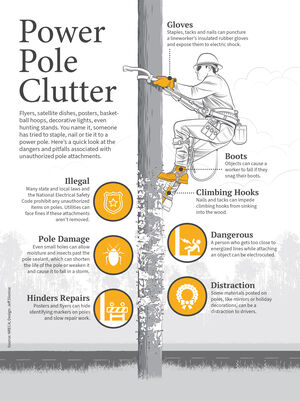Cooking in the West
May 29, 2020
In honor of National Beef Month, I have decided to rerun a branding etiquette column since I have had numerous requests to repeat it. One of the nicest compliments I have received is when readers have told me they have this column posted on their refrigerator or they have shared it with some of their branding crew. Sadly, as the population has become more removed from agriculture, there are many misconceptions about branding. Rather than being a gathering of neighbors to work together to get a big job done, it is often viewed by outsiders as a big party where people participate in a high risk activity.
An emergency room nurse once said to me, "Branding must be really dangerous, because we see a lot of people in the ER that have been hurt at a branding." I suggested to her that one reason for that is often that people do not have well trained horses or they don't ride their horses much if any in the early spring, and then they hop on them to go branding, and this boosts emergency room visits. In addition, with people and large animals going many directions at once, there are many opportunities for mishaps.
The idea for the need for this branding etiquette and safety column came about when we were gathering cattle at branding a few years back. Steve Story and I were assigned to go over the hill from the gate we would be pushing the cows through and gather the cows in our little tiny area of the pasture, while the rest of the crew gathered the rest of the section. Rather than be offended, we were honored that we, as old timers, drew an easy task befitting our stature. Pretty soon Linda Story drove by on the county road, which was very fortuitous, because now neither Steve nor I would have to get off to open the gate when it became time to turn the cows out of the pasture onto the road. Really, getting off is not the problem--it is getting back on your horse when your joints are all arthritic that makes little bonuses like Linda coming along as a gate opening companion feel like winning the lottery.
While we waited for the rest of the herd to be gathered, we three old codgers had lots of time to talk about how branding etiquette has been forgotten, and how we fear that soon no one will follow the conventions that the generations before us have followed. One such convention is that you never turn your horse in front of anyone else cutting them off--especially the boss. Another is that you always wait for the man on the ground--even if it is an old timer who has to look for a rock or a hillside for a boost on to his/her horse.
Once the cattle are gathered, there are many unwritten rules of etiquette that should be followed, but many are unaware of these traditional rules. When the cattle are sorted, tie your horse out of the way. Too many people in the sorting pen does not work well. It is generally best to be invited to help with sorting rather than be in the way.
The boss will tell you when it is your time to rope. Often the boss will start with the older cowboys or cowgirls and move down through the ages chronologically to the younger ropers. This is a time honored tribute to the older crew members. Most of the time, the ranch owners will not rope at their own branding unless there is a shortage of ropers.
The branding pen is not the place to train your horse. If you or your horse are not safe in the pen with other ropers or outside the pen with the wrestlers, don't rope. Wrestle and help as assigned, but leave your horse tied up if your skills or your horse's skills are not at the level they should be. If you are riding a young horse that poses a safety hazard even though it was doing fine at home, try to end on a good note and get out of the pen. Nothing irritates the crew more than someone who either overstays their turn in the roping pen or poses a safety threat.
Roping is a skill that must be practiced and perfected. If you dally with your thumb towards the horn, you need to go back to the practice pen until you break that habit. Do not drag high hocks to the fire--go back home and throw loops at the dummy if you find yourself jerking the slack on high hocks. It is better to lose your rope then allow yourself or your horse or someone else or their horse to get tangled in the rope. I have seen inexperienced ropers let the calf circle their horse completely rather than turn their dallies loose. This is a recipe for one of those emergency room visits. If you and/or your horse are not having a good day, it is better to leave the pen than stay in and frustrate yourself, your horse, and the whole crew.
I have never actually seen this phenomenon, but I have heard of parents allowing a child to ride with them while they are heeling calves in the branding pen. There are two words for this--child endangerment, and no one should stand by and allow this extremely dangerous practice to continue. Small children need to be taught the dangers of ropes and loose coils.
If you are a young person, you need to start out wrestling calves. The rancher will assign vaccinators, castrators, and other tasks to older members of the crew as a courtesy, but also because experience is needed for these important tasks. Injection site blemishes and infection are not risks a rancher is willing to take, so ranchers are selective about assigning such tasks. Do not be offended to be "just a wrestler."
Wrestling calves is not rocket science, but there is definitely a proper way to do it. If the roper drags a calf that is not double hocked, one wrestler jerks the rope and the other pulls the tail on the side of the foot that is roped. There is no other acceptable way of wrestling unless the calves are overly large and need to be flanked or legged down. As a wrestler, you need to learn this method and perfect it; never just dive on the calf and try to squash it to the ground. Calves are worth hundreds of dollars. If you slam the calf down, knock the wind out of it, squish its belly, kick it, or mistreat it in any way, it is not only animal cruelty, but it is just as though you took money from the owner's wallet. Treat the calves with respect. If possible, inexperienced wrestlers should be teamed up with an experienced wrestler who will show them how to wrestle properly. I have often joked that we need to make a Youtube video about proper calf wrestling techniques, but it is something that we should do. Every wrestler nowadays has a smartphone, so pulling up a calf wrestling video would be a better use of technology than taking branding selfies.
Small children with ropes do not belong in the branding pen. They might offer cute photo opps, but they are a danger to themselves and others. Again, take those pictures at home with the bucket calves. Give them a task like carrying the nut bucket or the disinfectant. It is ok to take photos of kids wrestling calves only if they are sitting with an experienced wrestler who is not going to let the calf get away and kick everyone in the process. It is important that young children learn wrestling techniques with an experienced wrestler who will not allow them to get hurt nor endanger anyone else.
When the branding is done, take care of your horse. Do not let your horse stand sweaty and saddled for hours while you eat and visit with the neighbors. Water your horse and look after him before you eat. Don't forget to help the cook. It might not be as glamorous as roping and wrestling, but helping out in the kitchen is always appreciated.
Branding is a fun and necessary activity in hot brand states, and it will go much more smoothly if everyone takes safety and etiquette seriously. If you disagree with my thoughts, send hate mail to Steve and Linda Story in Big Timber, Montana, not to my editor, please!
Whether you are feeding a branding crew or your family, beef is what's for dinner. Here are some of my favorite beef recipes.
Easy Shepherd's Pie:
1-1/2 pounds ground beef
1 medium onion, chopped
2 garlic cloves, minced
1/2 C. water
1 envelope taco seasoning
2 C. shredded Cheddar cheese, divided
3 C. leftover mashed potatoes, warmed
Preheat broiler. In a large ovenproof skillet, cook beef, onion and garlic over medium heat until beef is no longer pink, breaking up beef into crumbles; drain. Stir in water and taco seasoning; heat through. Stir in 1 cup cheese. Remove from heat. In a bowl, mix mashed potatoes and remaining cheese; spread over beef mixture. Broil 4-6 in. from heat 5-6 minutes or until the top is golden brown.
Beef Bombs:
1 lbs. ground beef
1/2 C. coarsely chopped onion
1/2 C. coarsely chopped green pepper
1 T. Montreal steak grill seasoning
1 1/2 C. shredded Monterey Jack cheese
1 can refrigerated Pillsbury Grands Flaky Layers Buttermilk Biscuits
Heat oven to 350°F. Line a large cookie sheet with cooking parchment paper, or spray with cooking spray.
In a10-inch skillet, cook beef, onion, bell pepper, and seasoning over medium-high heat 5 to 7 minutes, stirring occasionally, until beef is brown; drain. Remove from heat. Stir in 1 cup of the cheese until the cheese is melted.
Separate dough into 8 biscuits; let stand 5 minutes. Gently pull each biscuit apart, leaving bottom and lower sides intact, forming a deep pocket. Holding the opened biscuit in hand, place about 1/4 cup beef mixture inside, pressing inside to fit. Gently stretch dough over filling, pressing and firmly sealing around edges of biscuit. Reshape into round, and place on a cookie sheet. (Biscuits will be full.) Repeat for remaining biscuits.
Bake for 18 to 20 minutes or until biscuit tops are golden brown. Remove from the oven; sprinkle tops with remaining cheese. Return to the oven 2 to 3 minutes or until the cheese is melted.








Reader Comments(0)